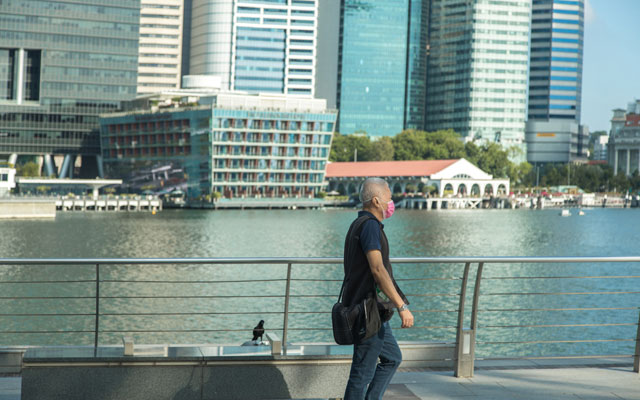Eight in 10 respondents in Singapore expect a potential second wave of the pandemic to have the biggest impact on business continuity over the next 12 months, according to an International SOS Return to Work survey.
Other issues that respondents in Singapore indicated were currently affecting the continuity of operations include: country lockdown measures (82%), international border controls (65%), inadequate home-working infrastructure (24%), mental health issues (12%), the lack of robust business continuity planning (10%), and the lack of accurate and timely information (9%).

Of these factors, the risk to mental health is considered the fourth biggest threat to business continuity in the next 12 months, with one-fifth of the respondents in Singapore (20%) fearing that this will have an impact.
David Teo, regional medical director at International SOS, said in a statement: “The links between mental health and business resilience have become ever more pronounced due to the COVID-19 pandemic. In the face of a likely economic downturn, many employees are concerned about job stability. Different working arrangements are also posing further concerns.
“As working from home continues to be the default for Singapore businesses during Phase 2, employees might feel isolated, burdened by the lack of social contact, or struggle with less than conducive home environments. Other employees who have returned to the office might be concerned about their increased risk of infection.”
Teo encouraged organisations to implement ways to support the emotional and mental wellbeing of employees as they adapt to the new normal. Confidential support should also be extended to them, as it will be critical in building workforce resilience.
Meanwhile, the top three priorities for organisations when it comes to ensuring a safe return to work were: updating business continuity plans (68%), implementing Covid-19 compliance monitoring tools (66%); and providing on-the-ground support for colleagues (53%).
Over a third (35%) of respondents in Singapore will also be implementing mental health support measures for employees when they return to work.
The survey also found that the majority of respondents in Singapore (84%) had a pandemic plan in place prior to the Covid-19 pandemic, slightly higher than the global average (80%).
Of these, two-thirds (65%) felt that their pandemic plan and processes were effective in reducing the impact of Covid-19 on their business.
These Singapore-centric results were part of a global survey which highlighted that 70% of companies indicated that their primary business continuity concern is further disruption from a potential second wave of Covid-19.
While there is a keen focus on measures that enable a return to work, over a fifth (21%) of global respondents said they do not have a pandemic plan and process in place. Furthermore, over 20% of companies expect mental health issues to also pose a major threat in the coming year.
The survey, which was conducted from May 11-25, 2020, analysed responses from over 1,000 professionals responsible for supporting the health, safety, security, and wellbeing of employees.





















